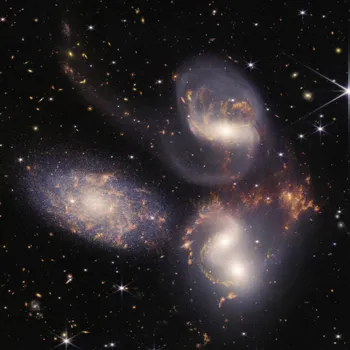Unveil the Cosmic Scale: Universe's Mind-Boggling Immensity. Dive into the vastness beyond human comprehension. Read on!
Ever looked up at the night sky and wondered just how big the universe actually is?
It's a question that has baffled scientists and stargazers alike for centuries. The sheer scale of it all is mind-boggling, enough to make your head spin faster than a ceiling fan in summer!
Well, buckle up, because we're about to take a journey to the edge of what we know, trying to grasp the immensity of the cosmos. Forget kilometers and meters—we're talking light-years and beyond. This isn't your everyday travel; it's an exploration of space, the final frontier.
Pictures of galaxies and nebulae show vast distances; universe is unbelievably huge
We often see pictures of galaxies and nebulae, those colourful clouds swirling in the deep. But do we really appreciate the distances involved? Imagine driving a car, even at top speed, it would take billions of years to reach even our closest neighbour.
One light-year is the distance light travels in one year, moving at a staggering 300,000 kilometers per second. That's like going around the Earth seven times in just one second! Now, multiply that distance by billions and billions, and you start to get a faint idea.
Our own Milky Way galaxy, which houses our solar system, is about 100,000 light-years across. That gives you a perspective, right? The universe is not just big; it's unbelievably, impossibly big almost beyond human comprehension.
The vastness of the observable universe and its expanding boundaries
To further illustrate this cosmic vastness, let's consider the concept of "observable universe." This is the portion of the universe that we can see from Earth, because light from these objects has had time to reach us since the beginning of the universe.
The age of the universe is estimated to be around 13.8 billion years. Due to the expansion of space, the edge of the observable universe is now about 46.5 billion light-years away in every direction. This means the diameter of the observable universe is a whopping 93 billion light-years.
Keep in mind, ‘observable’ universe means what we can currently see, and some astronomers believe that the universe extends far beyond this boundary. The light from those distant regions simply hasn't reached us yet, and it may never will.
The universe's accelerating expansion poses questions for our future
And speaking of expansion, the universe isn't just sitting still; it's constantly expanding. This means that galaxies are moving away from each other, like dots on an inflating balloon.

The rate of expansion is described by Hubble's Law, which states that the farther away a galaxy is, the faster it is receding from us. This expansion is accelerating, which means the universe is growing at an ever-increasing rate. What does this mean for our future?
It is an open question of much scientific enquiry. This affects the visibility of objects in the far future: objects that are currently visible may at some point be too far away, that the light can never reach us. The expanding universe is therefore of intense scientific inquiry.
The vast, mysterious universe expands beyond observable limits
The true size of the entire universe, beyond what we can observe, remains one of the biggest mysteries in cosmology. The current understanding, supported by the theory of inflation, suggests that the universe is much larger, potentially infinitely so, than the observable portion.
Inflation is a period of extremely rapid expansion in the very early universe, which could have stretched the universe far beyond what we can see today. Scientists continuously work to understand the expansion of the universe by developing and using advance math, tools to help understand.
Many researchers use advanced telescopes to see better. Therefore astronomy is among the leading frontiers of scientific enquiry.
The universe's vastness humbles and inspires exploration
So, how big is the universe, really? The answer is: we honestly don't know for sure. What we do know is that it's immense beyond our wildest imaginations. It's a humbling thought that our entire world, our solar system, even our entire galaxy, is just a tiny speck in this unfathomable cosmic ocean.
The immensity humbles us all to explore more and more. As we continue to explore the universe, discover other stars and understand dimensions, it ignites a sense of wonder and curiosity that drives us to learn more. For now, just gazing up at the night sky is a fantastic place to start.
It is also important to remember that we are all made of stardust.
AI Generated Content. Glance/InMobi shall have no liability for the content












